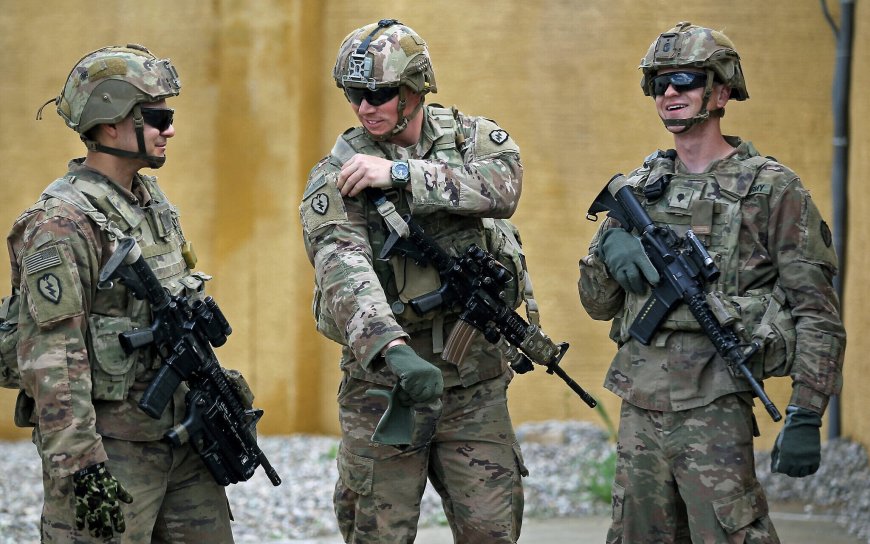Troops to Baltimore? Trump’s Crime Crackdown Plan Stirs Controversy
Former President Trump's threat to deploy federal troops to Baltimore amid improving 2025 crime rates has reignited legal battles over the Insurrection Act and raised alarms from local leaders and civil liberties groups.

On Tuesday, August 26, 2025, in a series of increasingly forceful statements, former President Donald Trump renewed his threat to deploy federal troops to Baltimore, framing it as a “clean-up” mission amid ongoing concerns about urban crime. The proposal has sparked legal, political, and civil rights alarms, raising fundamental questions about federal authority and the role of military power in American cities.
Baltimore’s Crime Reality vs. Political Narrative
While Trump singles out Baltimore as a crime-ridden battleground, official data paints a different picture. The Baltimore Police Department’s mid-year 2025 report documents a 22 % drop in homicides and similar declines in nonfatal shootings over the prior year baltimorepolice.orgMaryland Matters. In addition, the running 365-day murder tally stands at around 165, which would translate to approximately 25 murders per 100,000 residents—a level unseen since the late 1970s The Guardian.
Despite these trends, Trump’s rhetoric positions the city as emblematic of national breakdown. “We will send troops if needed,” he declared, directly criticizing Governor Wes Moore for what he cast as inadequate local leadership The Times of IndiaThe Washington Post.
Legal Landscape: The Insurrection Act and Precedents
Deploying federal troops domestically requires navigating the Insurrection Act of 1807, which suspends the Posse Comitatus restriction under extreme conditions—typically rebellion or inability to enforce federal law through regular means Brennan Center for JusticeTIMEThe Washington Post. The most recent invocation of the Act occurred during the 1992 Los Angeles riots, when Governor Pete Wilson formally requested federal assistance following widespread civil unrest Landmark Legal FoundationTIMEThe Washington Post.
Today, Trump has not formally invoked the Insurrection Act in Baltimore or elsewhere. His past actions—such as deploying the National Guard to L.A. amid protests—have relied on Title 10 authority to federalize state troops, but stopped short of overt military law enforcement deployments NBC Bay AreaPolitiFactReuters. Constitutional scholars warn such orders are legally fragile—Title 10 allows limited mission scopes (like protecting federal property), not street-level law enforcement PolitiFactLos Angeles TimesThe Washington Post.
Local and Civil Liberties Reactions
Governor Wes Moore, a military veteran and Baltimore native, swiftly denounced Trump's posture as politically charged and destructive. Moore emphasized that the city deserves “proper violence prevention funding”, not military theatrics, and invited Trump to see his administration’s progress firsthand Politico.
Civil liberties advocates, including the ACLU, have condemned the deployment threats. They argue that military enforcement in the streets undermines democratic norms, threatens constitutional rights, and misuses personnel trained for national defense—not policing communities American Civil Liberties UnionPolitico.
The Stakes Ahead: Politics, Midterms, and Urban Enforcement
Trump’s troop rhetoric feeds directly into the 2026 midterm narrative. His law-and-order messaging rallies base supporters while pressing Democratic-led cities like Baltimore—and their officials—into defensive postures. Whether viewed as political theater or a veiled policy option, the threat underscores deepening federal–state tensions and the politicization of public safety.
For Baltimore residents, law enforcement officials, and city leaders, this moment demands both defensive clarity and proactive storytelling—presenting tangible crime data, humanizing residents' improvements, and challenging fear-based narratives.
Why This Matters
-
Public trust in government depends on credible, data-grounded policymaking—not sensationalist threats.
-
The legacy of the Insurrection Act reminds us that extraordinary powers warrant extraordinary justification.
-
The urban political battleground is increasingly shaped by symbolic gestures and media cycles.
-
Democratic norms hinge on restraining military force to legitimate national defense—not everyday civic life.
What's Your Reaction?
 Like
0
Like
0
 Dislike
0
Dislike
0
 Love
0
Love
0
 Funny
0
Funny
0
 Angry
0
Angry
0
 Sad
0
Sad
0
 Wow
0
Wow
0








































































